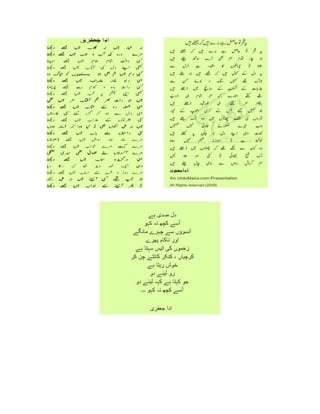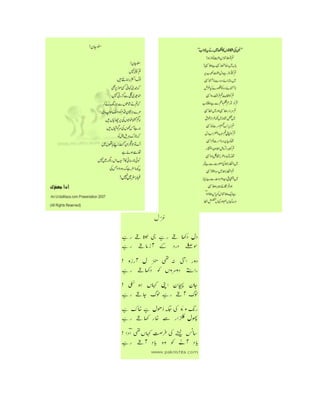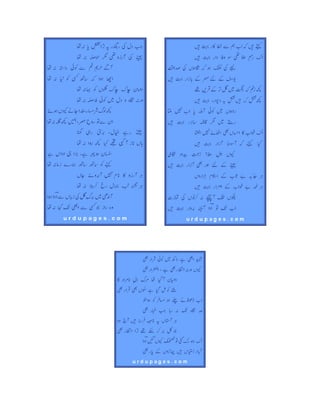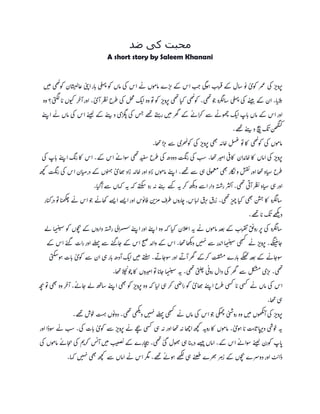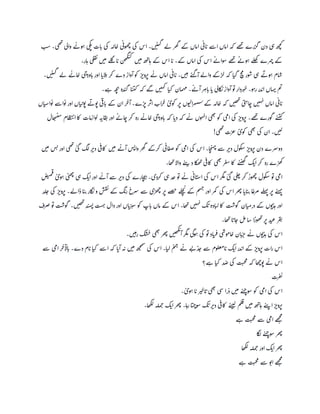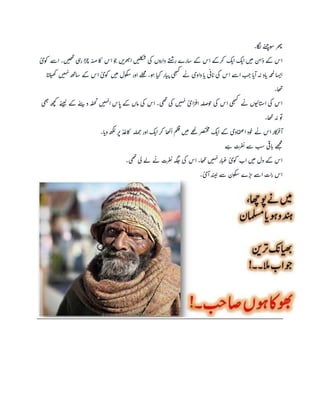The document features a tribute to Mahwash Gaba, highlighting her selflessness, dedication, and strong character as a mother and friend. It reflects on her journey from being a medical student in Pakistan to becoming a clinical psychologist in the UK, showcasing her commitment to family and education despite numerous challenges. Additionally, it emphasizes the love and admiration her son, Kamran, has for her, portraying her as an inspirational figure in his life.
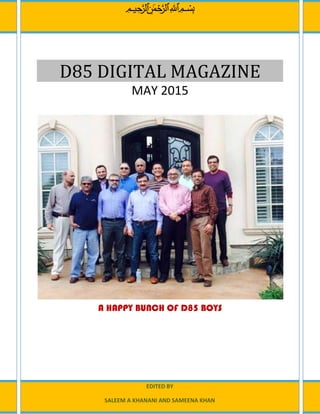
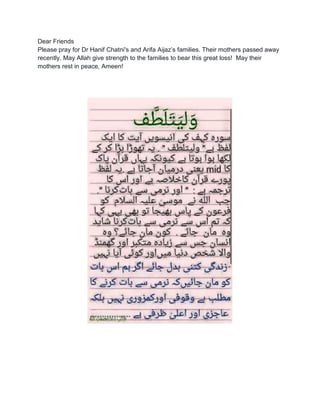
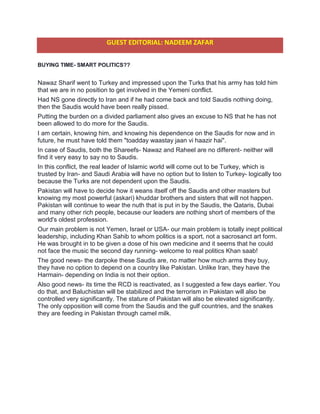
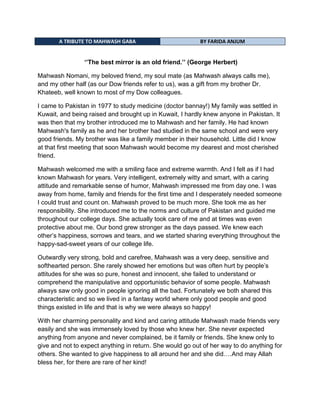
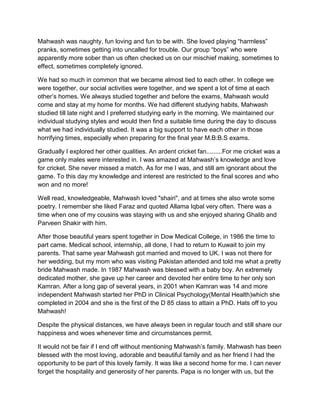
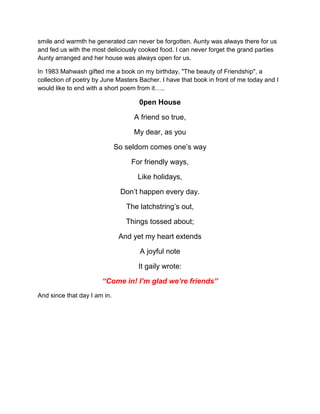
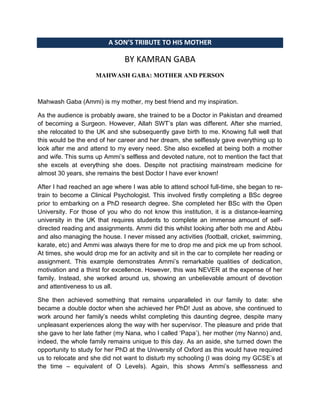
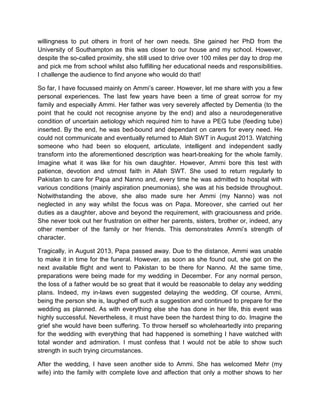
![own daughter. People have even remarked that Ammi treats Mehr less like a daughter-
in-law and more like a daughter! She even favours Mehr over me at times! Jokes aside,
the love and affection I have seen from Ammi towards Mehr and the effort she has
made to welcome Mehr into our family and attend to her every need and wish
demonstrates the large heart that beats in Ammi‟s chest. We can all learn a great deal
from her. Indeed, she is so approachable and easy-going that, any time any member of
her family have any issues, they share it with her so they can get her wise counsel.
There have been times when certain cousins of mine have shared intimate secrets with
Ammi which they haven‟t even told their own parents! That is the level of trust people
have in Ammi and also how much they value her non-prejudiced and fair opinions.
Finally, I would like to share with you all the quality that I believe is Ammi‟s greatest
asset but also her biggest weakness: her ability to forgive. Over the years, many people
have said and done things which have hurt Ammi. I am sorry to say that she has been
openly insulted and demeaned at times. However, not once has she retaliated. She has
continued to behave graciously with those people and has even forgiven them for the
horrific things they have said and done. Not only does that require a big heart, it also
requires humility (another characteristic that Ammi has in abundance). Indeed, Allah
SWT says in the Quran:
“And the servants of the Most Merciful are those who walk upon the earth easily,
and when the ignorant address them [harshly], they say [words of] peace” (25:63)
This quotation summarizes Ammi‟s attitude to people who treat her badly and this is
perhaps the biggest accolade that I can give to her.
I feel blessed by Allah SWT that he gave me Mahwash Gaba as my Ammi. Throughout
her life, she has dedicated herself to her family. She has always been a fantastic
daughter, a devoted wife and a loving mother. She is not just my mother but also my
oldest and best friend, my counsel and my comfort. I know that I can always rely on
Ammi and she will always be there for me. I have witnessed first-hand how selfless,
generous, kind, affectionate, devoted and strong she is as a person. She has also
always excelled in everything she has done and also manages to maintain perspective
by actively practising as a Muslim. She is a supermum and, like I said earlier, an
inspiration. May Allah SWT always protect her and reward her immensely both in this
world and the Akhirah inshaAllah. Ameen.](https://image.slidesharecdn.com/d85digitalmagazinemay2015-150503202652-conversion-gate01/85/D85-Digital-Magazine-May-2015-9-320.jpg)
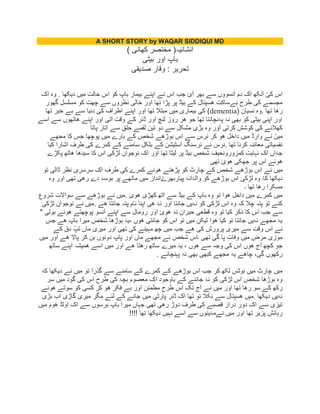
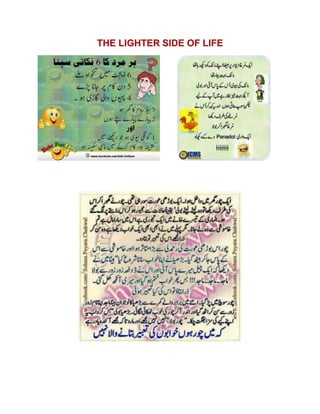
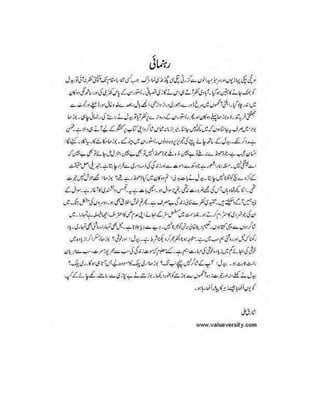
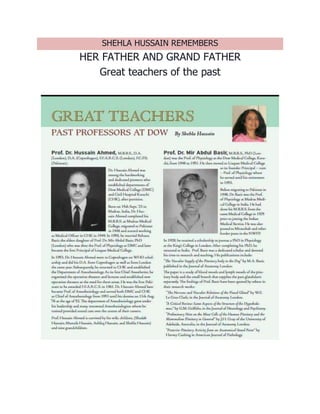
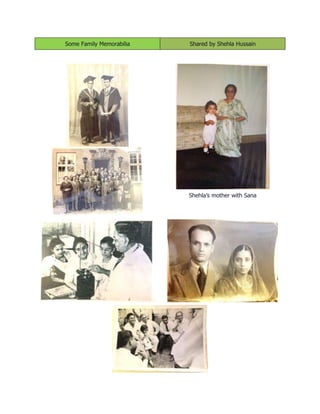
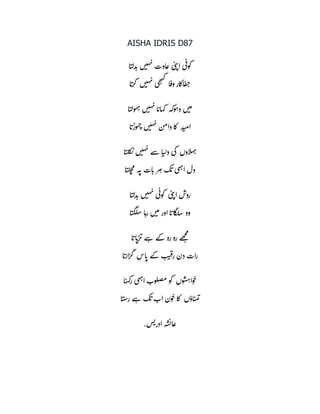
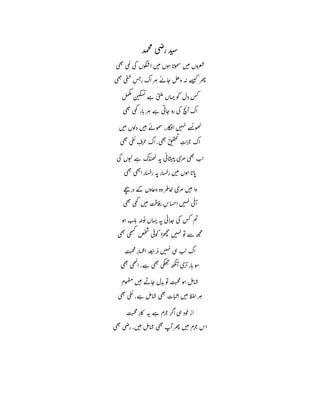
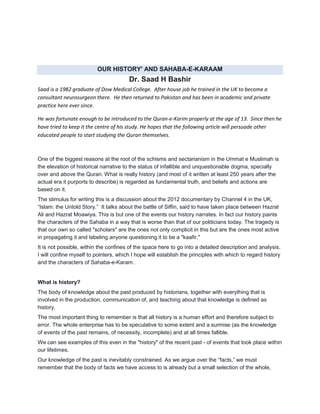
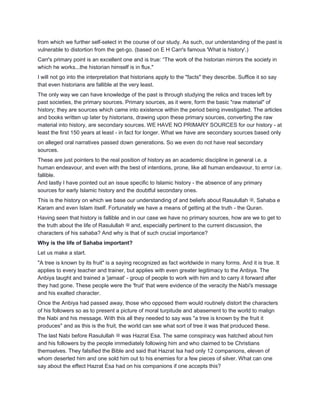
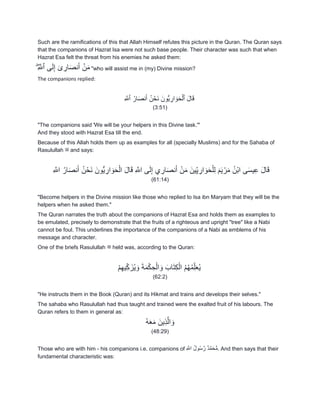
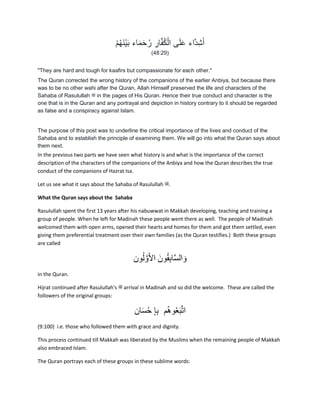
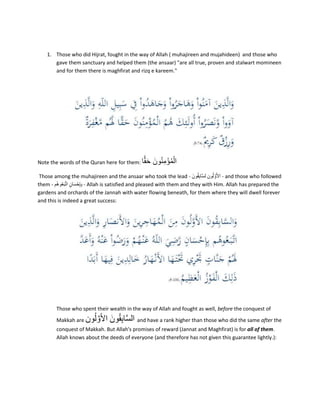
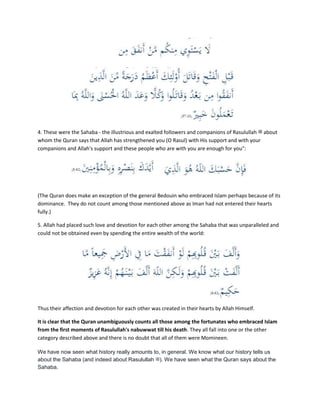
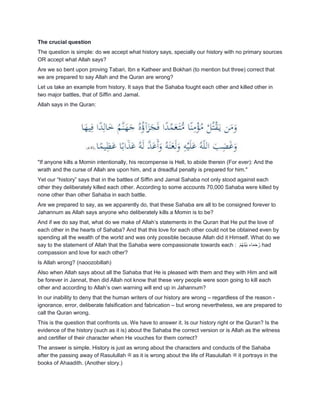
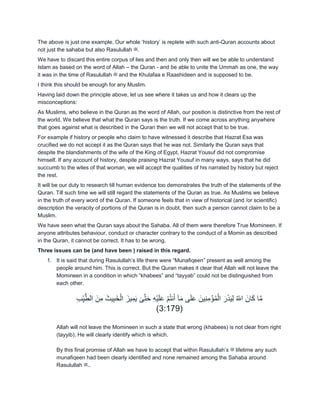
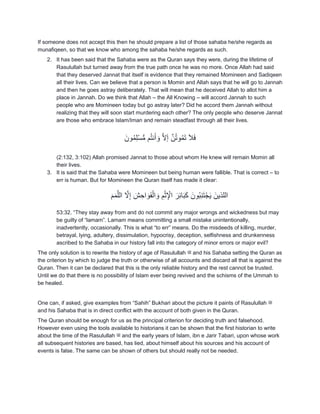
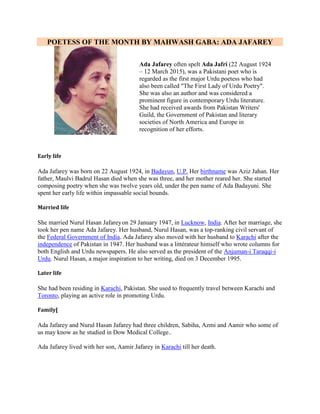
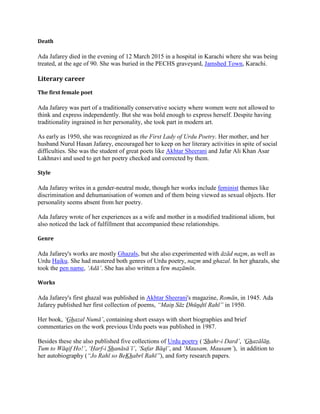
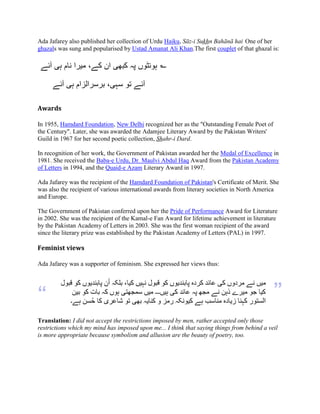
![Critical reputation
Various critics say that Jafarey's poetry is full of politeness of expression. She combines both old
and new thoughts in a very unique artistic way through her poetry.
Qazi Abdul Ghaffar, in his introduction to Ada Jafarey’s collection of verses, particularly
mentioned her name in the field of feminist way of expression.
The Urdu poet and critic, Jazib Qureshi, said:[2]
A f r y s t f rst o y y po t w o c rr s n her poetry the eternal colours of
Ghalib, Iqbal, and Jigar.”
A SELECTION OF POEMS BY ADA JAFAREY](https://image.slidesharecdn.com/d85digitalmagazinemay2015-150503202652-conversion-gate01/85/D85-Digital-Magazine-May-2015-29-320.jpg)
